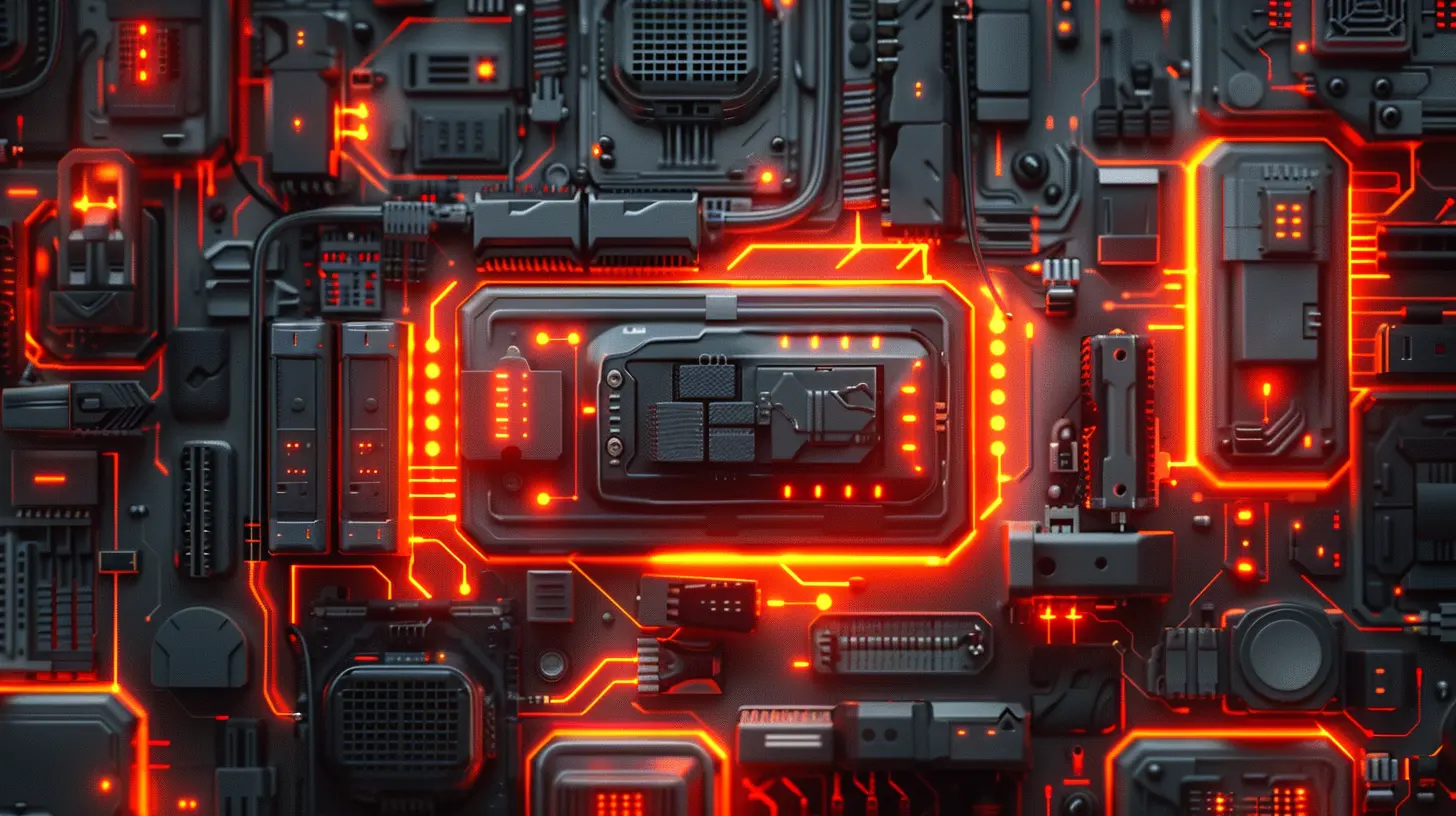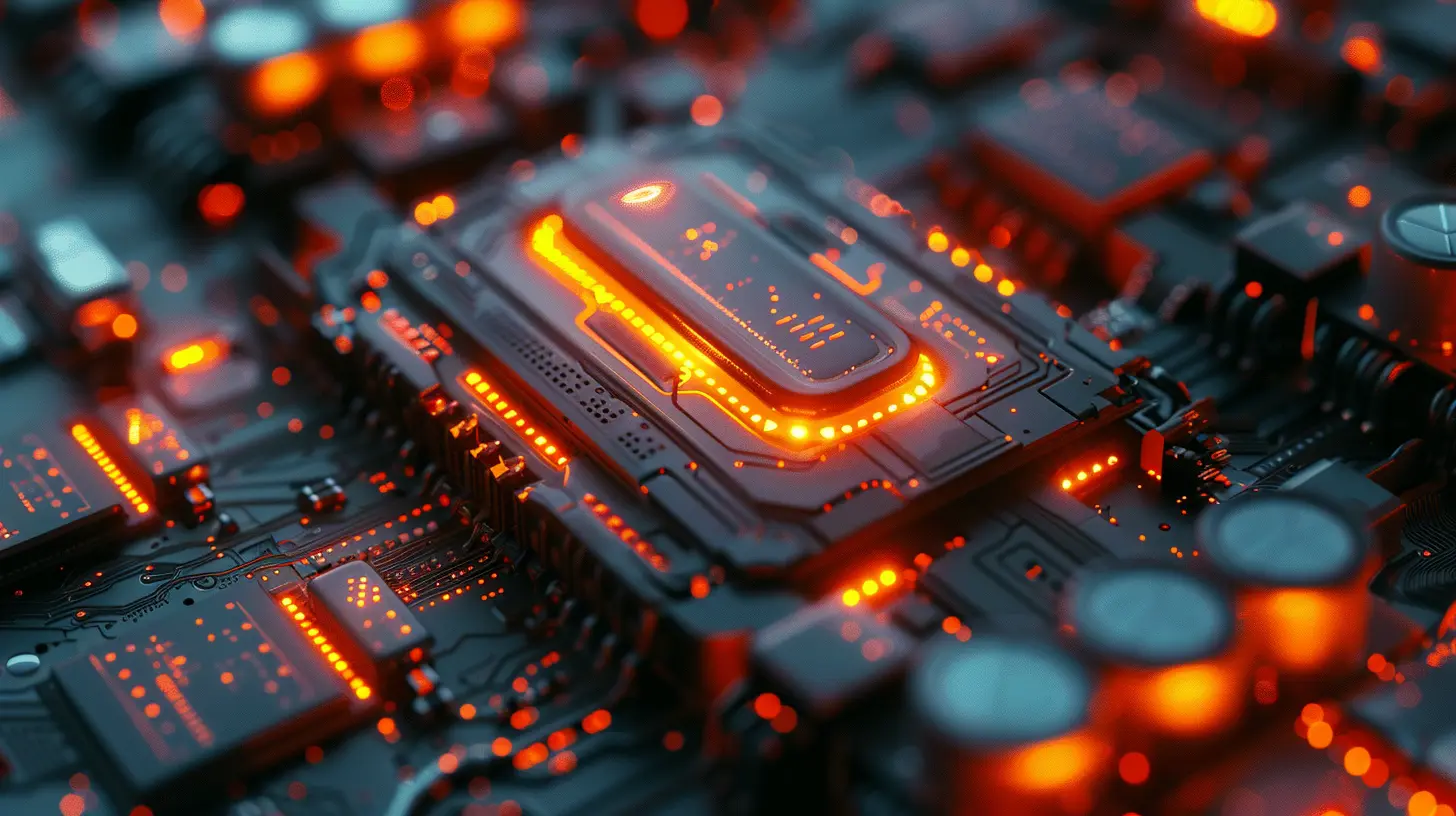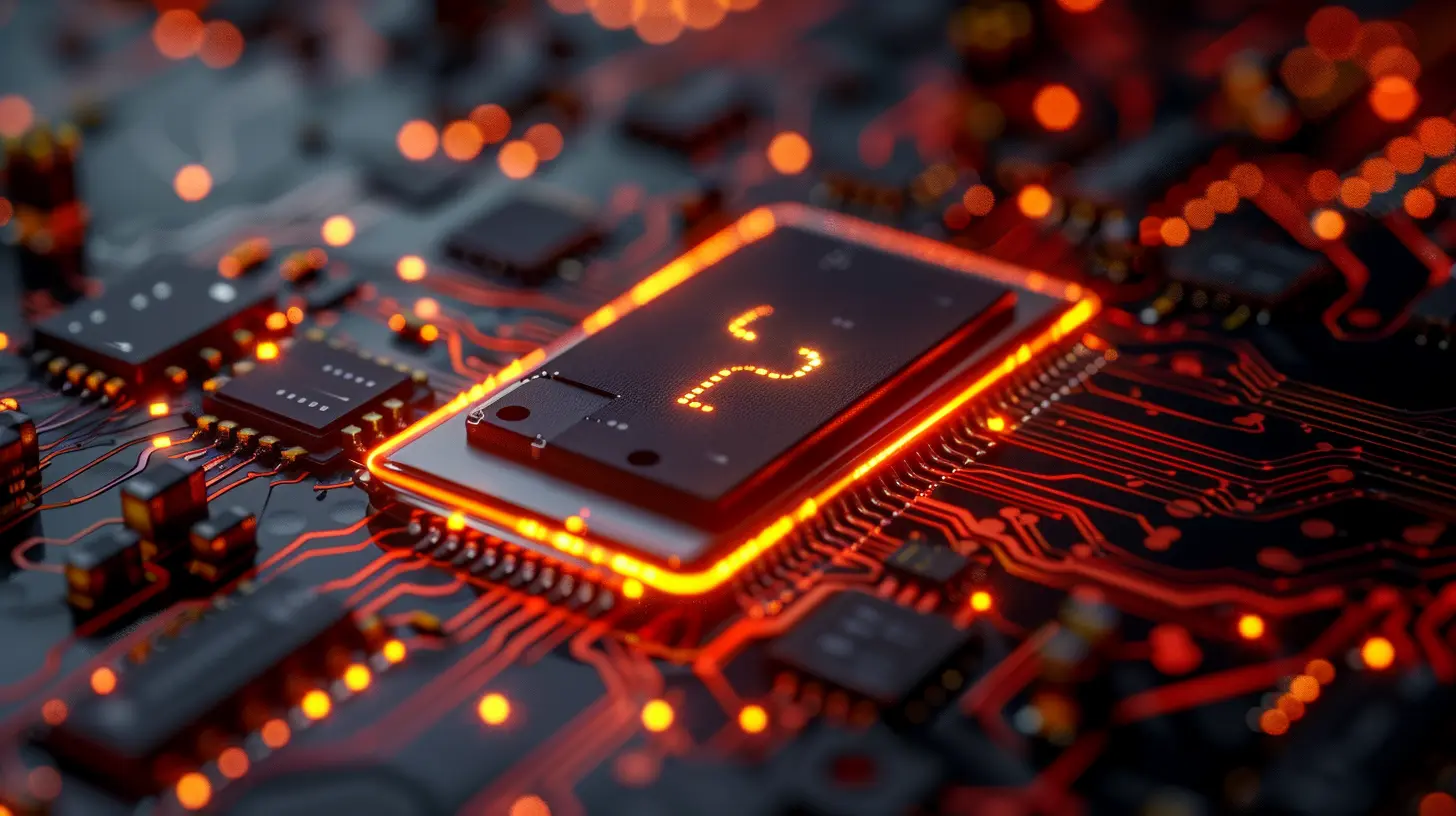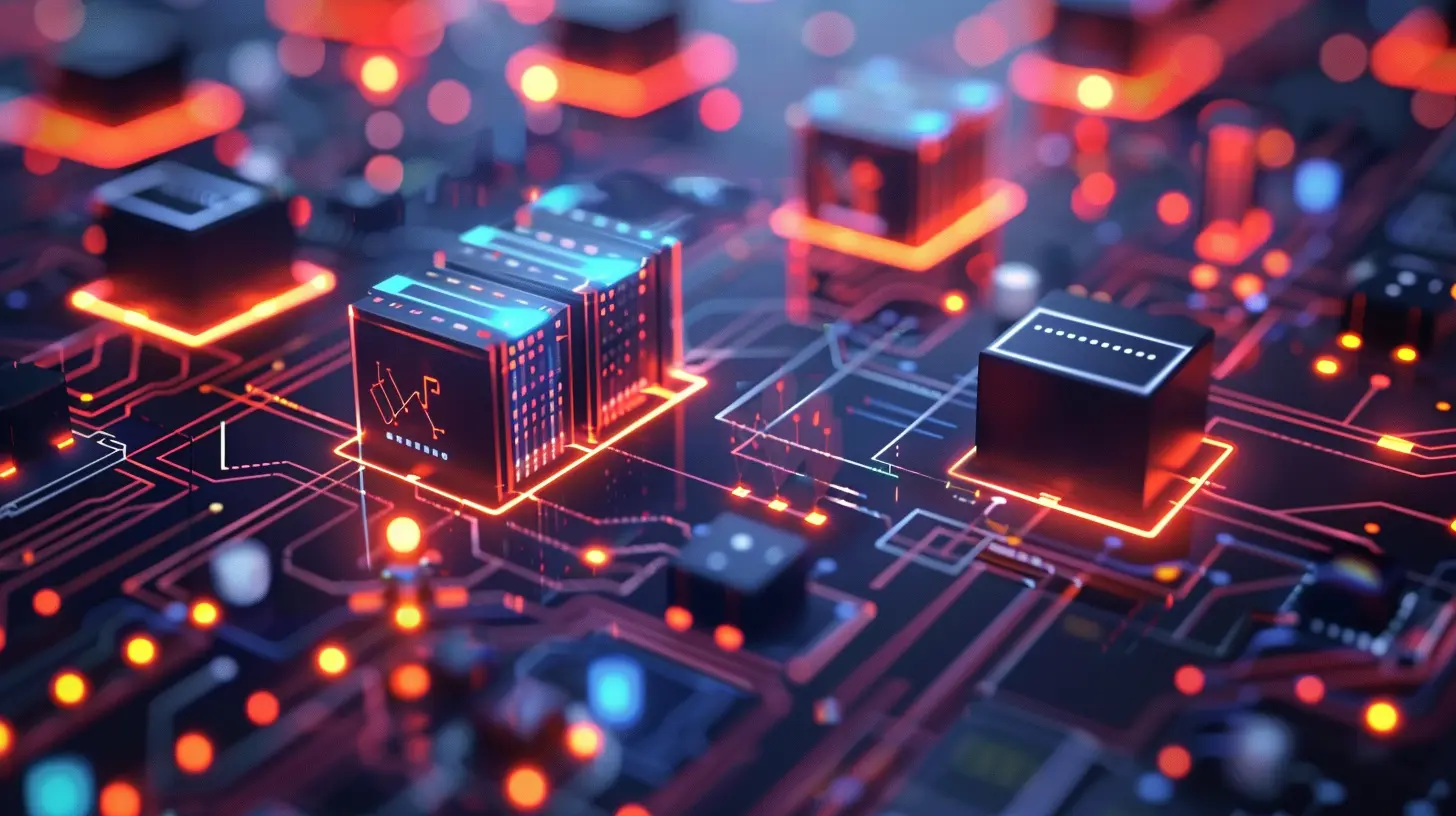The Power of AI in Predicting Battery Performance
27 May 2025
In today's fast-paced world, we depend on technology more than ever. From smartphones to electric cars, nearly everything relies on batteries to keep running. But here's the kicker: batteries aren't perfect. They degrade over time, sometimes faster than we expect, and that’s a major headache. But what if I told you that artificial intelligence (AI) might hold the key to solving this? Yep, you heard that right. AI is stepping in to revolutionize how we predict battery performance—and it’s a game-changer.
In this piece, we’ll dive into the nitty-gritty of how AI is transforming the world of battery technology. Buckle up because it’s about to get exciting!

Why is Predicting Battery Performance Important?
Before we get into the AI wizardry, let's take a step back and ask ourselves: Why should we care about predicting battery performance in the first place?Well, it's quite simple. Batteries are everywhere. Whether you're talking about your phone, laptop, or even that sleek Tesla parked in your garage, batteries are the backbone. But they're also temperamental. One day they work flawlessly, and the next, they seem to drain faster than your motivation on a Monday morning.
Accurately predicting how long a battery will last, how it will degrade, and when it might fail is crucial for several reasons:
1. Efficiency: Knowing battery performance helps manufacturers build more energy-efficient products, which is a win for both businesses and consumers.
2. Safety: Sudden battery failures can lead to dangerous situations. Think about those reports of phones catching fire or electric cars breaking down unexpectedly. Accurate predictions can prevent such incidents.
3. Sustainability: Optimizing battery life means fewer discarded batteries, which is obviously a huge win for the environment.
So yeah, predicting battery performance isn't just a "nice-to-have," it's essential.

The Traditional Methods of Predicting Battery Health
Before AI entered the scene, we relied on traditional methods to predict battery performance. These methods included:1. Electrochemical Models
Scientists used complex math-based models to understand how batteries behave under different conditions. These models were pretty accurate but incredibly time-consuming and required a deep understanding of chemistry.2. Empirical Testing
This involved running batteries through thousands of charge and discharge cycles to see how they performed. While this method worked, it was resource-intensive, took ages, and wasn’t always practical.3. Voltage and Current Readings
Tech devices typically monitor basic parameters like voltage and current to estimate battery life. However, this method is far from precise and often leads to inaccurate predictions.As you can see, these traditional methods had their limitations. They were either too slow, too complex, or just plain unreliable. Enter AI, the hero of our story.

How AI is Revolutionizing Battery Performance Prediction
When it comes to predicting battery performance, AI is like your GPS on a road trip. It not only tells you where you are but also gives you accurate predictions of what's coming up—whether that’s a full battery charge or an inevitable battery failure.1. AI and Machine Learning Algorithms
At the core of AI's ability to predict battery behavior are machine learning algorithms. These algorithms can sift through massive amounts of data, recognize patterns, and make predictions far more accurately than humans or traditional models ever could.By feeding AI systems data from thousands of charging cycles, temperatures, voltages, and other variables, the algorithm learns to predict how a battery will perform under different conditions. What's even more exciting is that these predictions get better over time as the AI "learns" from new data.
2. Real-Time Monitoring
Unlike traditional methods that often involve running multiple tests over time, AI can offer real-time insights. By monitoring a battery's performance in real-time, AI can make immediate predictions about how long the battery will last, when it will need replacing, or whether it’s about to fail.Think about it like this: imagine having a personal fitness coach who tracks your every movement, heart rate, and calorie intake in real-time, giving you instant feedback on how you're doing. That’s essentially what AI does for batteries.
3. Predicting Battery Degradation
One of the biggest challenges in battery tech is predicting how and when a battery will degrade. Batteries don’t just die out of the blue; they degrade over time. But predicting that rate of degradation has always been tricky—until now.With AI, we can analyze the minute details of a battery’s performance and make incredibly accurate predictions about its lifespan. This is especially crucial for industries like electric vehicles (EVs), where battery life is a make-or-break factor.
4. Handling Complex Variables
One of the reasons traditional methods fell short is that batteries don’t operate in a vacuum. There are so many variables—temperature, charge cycles, discharge rates, and even the chemical composition of the batteries themselves. AI shines here because it can process this vast amount of data and account for all these variables simultaneously.For example, electric vehicle batteries operate under wildly different conditions depending on the climate, driving habits, and even the terrain. AI can take all of these factors into consideration to make more accurate predictions.

Real-World Applications of AI in Battery Performance
Alright, so we’ve established that AI is pretty awesome when it comes to predicting battery performance. But what does this look like in the real world? Let’s take a look.1. Electric Vehicles
One of the biggest areas where AI is making a splash is in the electric vehicle (EV) industry. EVs live and die by their batteries, and knowing how long an EV battery will last is crucial for both manufacturers and consumers.Tesla, for example, is using AI and machine learning to improve its battery technology. By analyzing data from thousands of vehicles on the road, Tesla can predict battery degradation more accurately, allowing them to optimize performance and extend battery life.
2. Smartphones
Ever wondered why your phone’s battery life seems to go downhill after a year or two? AI can help with that. Companies like Google and Apple are integrating AI into their systems to optimize battery performance. For instance, Google's Adaptive Battery feature on Android uses AI to predict which apps you'll use next and optimize battery usage accordingly.3. Energy Storage Systems
AI is also making an impact in large-scale energy storage systems, like those used in renewable energy solutions. With renewable energy becoming more critical, being able to store that energy efficiently is key. AI helps by predicting how long these large batteries will last and optimizing their performance based on current energy demand.4. Healthcare Devices
From pacemakers to insulin pumps, many healthcare devices rely on batteries. AI can help predict when these batteries will need replacing, potentially saving lives by preventing sudden failures.The Future of AI in Battery Technology
The AI-battery relationship is still in its early stages, but the future looks incredibly promising. As AI algorithms become more advanced and we gather more data, predictions will become even more accurate. Here are a few exciting developments on the horizon:- Self-Healing Batteries: Imagine a world where your battery can "heal" itself when it starts to degrade, thanks to AI predicting potential failure points.
- Battery Recycling: AI could help optimize the recycling process, ensuring that valuable materials like lithium and cobalt are recovered more efficiently.
- Ultra-Fast Charging: AI could help develop technologies that allow batteries to charge faster without degrading, solving one of the biggest pain points for EVs and smartphones.
Challenges and Limitations
Of course, no technology is perfect, and AI is no exception. While the potential is massive, there are still some hurdles to overcome:1. Data Quality: AI relies heavily on high-quality data. If the data is flawed or incomplete, the predictions won't be as accurate.
2. Computational Resources: Running complex AI algorithms requires significant computational power. While this isn't necessarily a deal-breaker, it can be a limiting factor, especially for smaller companies.
3. Interpretability: AI systems are often seen as "black boxes," meaning it's sometimes difficult to understand how exactly they arrive at their predictions. This can be a challenge in industries like healthcare, where transparency is crucial.
Conclusion: The Power is in the Prediction
AI is poised to change the way we think about batteries, making them more reliable, efficient, and safe. From electric vehicles to smartphones, AI’s ability to predict battery performance will lead to longer-lasting devices, fewer battery failures, and a more sustainable future.So, the next time your phone battery lasts a bit longer than expected, or your EV gets you that extra mile, you might just have AI to thank.
all images in this post were generated using AI tools
Category:
Battery TechnologyAuthor:

John Peterson
Discussion
rate this article
3 comments
Caleb Jacobs
While AI's prowess in predicting battery performance is revolutionary, what unseen factors could it unveil? As we harness these algorithms to forecast energy life, are we merely scratching the surface of a deeper mystery that intertwines technology, sustainability, and the unknown future of energy?
June 12, 2025 at 4:31 AM

John Peterson
Absolutely, while AI significantly enhances our understanding of battery performance, it may also uncover complexities related to material science, environmental impacts, and long-term sustainability that we have yet to fully explore.
Vanya Bennett
Great article! It's exciting to see how AI is revolutionizing battery performance predictions. With these advancements, we'll soon have longer-lasting gadgets—let’s recharge our optimism for a greener future! ⚡️
June 11, 2025 at 3:47 AM

John Peterson
Thank you! I’m glad you found the article inspiring. Exciting times ahead for greener technology! ⚡️
Mandy McLean
Great article! It’s fascinating how AI is transforming battery technology. Excited to see how these advancements will enhance our devices and support sustainable energy solutions!
June 3, 2025 at 12:29 PM

John Peterson
Thank you! I'm glad you found it fascinating. The intersection of AI and battery technology holds tremendous potential for a sustainable future!



